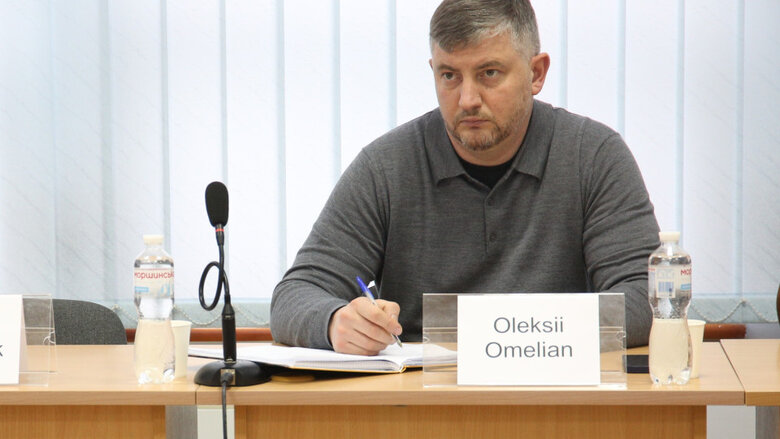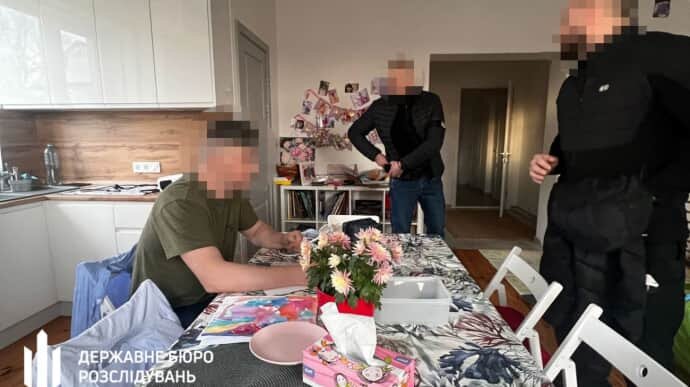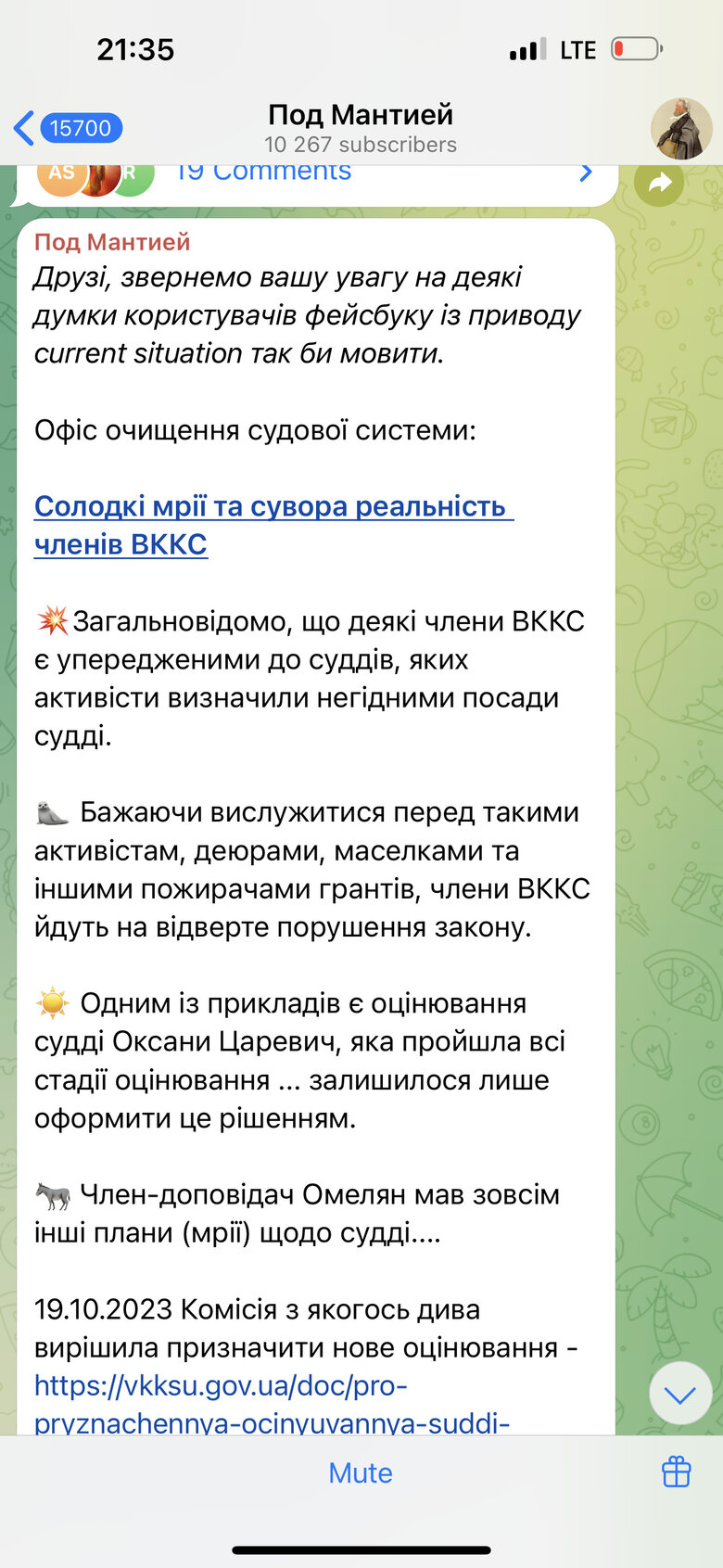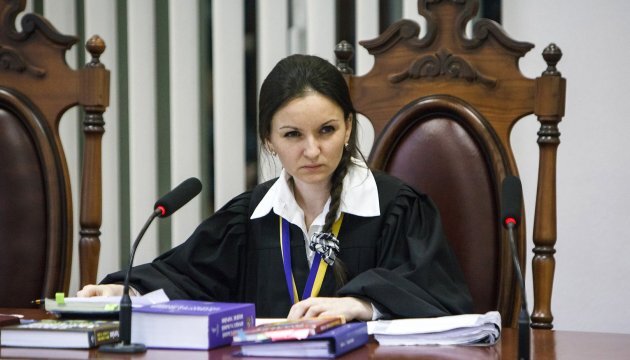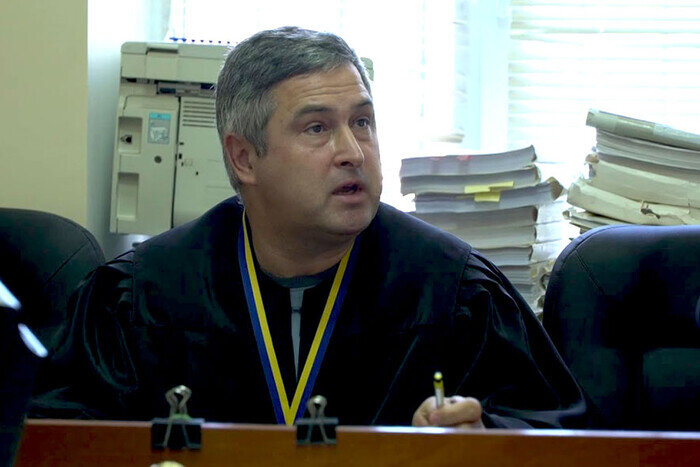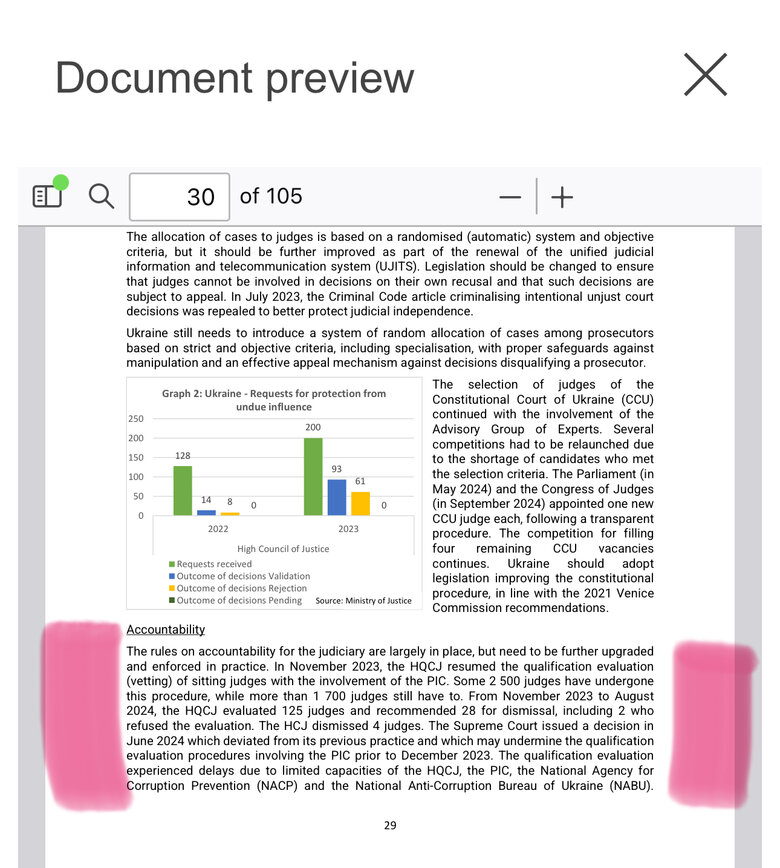Saving Tsarevych and KDAC: How SBI case could change fate of notorious judges
It is unclear how searches involving 20 people in the early morning could change the essence of the case in which Tandyr fatally hit a man. However, this proceeding could ultimately allow a number of notorious judges to retain their positions.
At the end of last week, SBI (State Bureau of Investigation) officers searched the home of Omelian, Deputy Head of the High Qualification Commission of Judges of Ukraine, as part of an investigation into possible court misrepresentation.
It is alleged that Omelian may have provided false testimony in court in the case of Judge Tandyr. The proceedings were initiated following a request from People`s Deputy Maksym Buzhanskyi.
Read more in the Censor.NET article.
But let's take a roundabout approach to the subject. Judicial reform has been one of the least successful in Ukraine. There is no other branch of government whose representatives have been so effective in retaining their positions.
Notably, notorious judges such as Serhii Vovk and Oksana Tsarevych remained in their positions even after the Maidan.
The High Qualification Commission of Judges (HQCJ) was intended to be a key element of judicial reform, tasked with conducting an "audit of judges" through a qualification assessment and selecting new candidates for judicial positions.
This reform got off to a rocky start under Petro Poroshenko. However, with the arrival of Volodymyr Zelenskyy’s team, parliament dissolved the HQCJ in October 2019, expressing its disagreement with the previous government's reform.
The process of reformatting the HQCJ remained stalled for three years, leaving over 2,500 judicial positions vacant across the country.
In November 2023, the commission resumed its work, with an agenda focused on evaluating more than 1,800 judges. In August 2024, a new head of the HQCJ was elected. Former NACP representative Andrii Pasichnyk, with Oleksii Omelian appointed as his deputy. At the time, Omelian was serving in the State Border Guard Service following his mobilization.
Since its work, the HQCJ has dismissed 60 judges, nearly one in three who have undergone evaluation.
Next in line were judges of the Pecherskyi Court and the controversial KDAC (Kyiv District Administrative Court) (although the latter has been disbanded, its judges remain in office). They were required to undergo a psychological evaluation followed by an interview.
In particular, the Commission's decision No. 47/zp-25 as of March 7, 2025, scheduled testing as part of the qualification assessment procedure to determine compliance with the judicial position, including those required to undergo testing were judges from the KDAC (Ablov Y.V., Vovk P.V., Kuzmenko A.I., Skochok T.O., Sokolova O.A., Amelokhin V.V.) and other administrative courts, as well as judges from the Pecherskyi District Court of Kyiv (Bilotserkivets O.A., Vovk S.V., Hryhorenko I.V., Kitsiuk V.P., Kozlov R.Y., Konstantinova K.E., Pidpalyi V.V.).
The test was scheduled for 17 March 2025. However, out of 41 judges who were expected to attend, only 8 showed up—2 from KDAC, and none from the Pecherskyi Court.
Shortly after the specified announcement, SBI investigators arrived at the HQCJ. First, on 10 March, they conducted searches at the Commission’s premises as part of a criminal case registered on 25 July 2024, citing "a criminal offense under Part 1 of Article 376-1 of the Criminal Code of Ukraine (illegal interference with the operation of automated systems within judicial institutions)."
This refers to the case of Judge Pavlo Vovk, whose test questions were duplicated during the exam. The HQCJ found no evidence of external interference, suggesting instead that it was a software malfunction. Nevertheless, criminal proceedings were initiated.
They opened the case, and so they did. However, for some reason, the investigation focused not on the server room, but on the office of HQCJ Deputy Head Oleksii Omelian. The first search took place on 10 March. Then, on the morning of 14 March, SBI investigators paid a visit to his home—in the same case filed at the statement of Buzhanskyi. The case involves allegations that Omelian lied about his vacation, where he was in the company of Judge Oleksii Tandyr, who later knocked down and killed National Guard serviceman Vadym Bondarenko.
Pro-judiciary Telegram channels, such as Pod Mantiei ("Under the Robe") (of course, the name had to be in Russian), suggest that Omelian was in the same car as Tandyr.
However, if you read the courtroom reports, a slightly different story emerges. According to his own testimony, Omelian was invited on fishing, where he knew the host and Tandyr. He and Tandyr were traveling by car to Petrushky. Omelian stated that he did not see anyone consuming alcohol during the drinking party.
"We arrived at the house, and there were two or three other people there. I was only focused on cutting the food and having dinner. By my count, there were six people at the table. I didn’t know anyone except Yaroslav and Oleksii Tandyr. I did not see anyone consuming alcohol at the table," Omelian said in court, according to Watchers.
However, according to the investigation, Tandyr was intoxicated.
Court records indicate that Omelian left the drinking party "much earlier." Theoretically, he may indeed not have witnessed any alcohol consumption. And if he did lie, only other guests or camera footage could confirm it.
But now, let's focus on another nuance—one that is far more significant in this story. Omelian was the rapporteur on Oksana Tsarevych, whose performance was to be assessed by the HQCJ. He was also responsible for preparing all the inquiries regarding her.
For those who have forgotten, I will have to remind you who Oksana Tsarevych is.
In 2010, Tsarevych was appointed a judge of the Pecherskyi District Court of Kyiv by President Viktor Yanukovych. Before that, she was an assistant to Inna Otrosh.
She first gained recognition during the hearings in the case of Yuriy Lutsenko, where she served on the same panel as Judge Serhii Vovk. Later, she was a judge in the pre-trial investigation into Yuliia Tymoshenko's alleged involvement in the murder of Yevhen Shcherban. At the time, both cases were widely regarded as politically motivated prosecutions by the Yanukovych administration.
But that was not the worst of it. During the Revolution of Dignity, Tsarevych issued an unlawful ruling against four individuals who had participated in the Automaidan trip to Mezhyhiria on 29 December 2013. According to witness testimony, none of them were stopped near Mezhyhiria for traffic violations. Several individuals were in different locations, and one man was not even behind the wheel. Yet, they were stripped of their driver's licenses for six months.
On 29 September 2016, President Petro Poroshenko signed a decree dismissing her as a judge after the High Council of Justice recommended her removal for violating her judicial oath, particularly due to her "unlawful rulings" in the Maidan cases.
However, in April 2021, the Supreme Court overturned the decree, reinstating Oksana Tsarevych to her position as a judge of the Pecherskyi District Court of Kyiv.
And for her, the certification process took a new turn but followed a simplified procedure.
Therefore, it is particularly striking that the searches of Omelian took place just before the hearing of the Tsarevych case, in which he had prepared all the documents.
"This system is built on obligations. These judges, when making their decisions, received guarantees that they would not face consequences for them. And now, their dismissal would serve as proof of the failure of those who provided these guarantees," said a Censor.NET source familiar with the system.
However, the postponement of the hearing on Tsarevych and the KDAC judges is only the tip of the iceberg.
To obtain a search warrant, SBI investigators had to go through the Pecherskyi Court.
Now, these same judges can argue that the HQCJ will have a conflict of interest when it comes to their interviews.
In addition, on Monday, some commission members were questioned by the SBI. As a result, it can also be said that they, too, may face a conflict of interest in the future regarding the judges they will be assessing.
According to Olena Shcherban, a lawyer at the Anti-Corruption Action Center, all this is legal casuistry aimed at simply halting the certification of judges.
"All this is about delaying and blocking the qualification assessment of judges. First of all, the Pecherskyi Court, and in the future it is possible that the same methods will be used to influence the competition to the appellate courts," she said in a comment to Censor.NET.
Assessing the situation in the HQCJ, she described it as, in essence, pressure on commission members.
"Firstly, searches are a form of pressure. Especially when such measures take place simultaneously and in a coordinated manner across multiple cases, and the search warrants are issued by judges who are set to be evaluated by the HQCJ the very next day for their suitability for office. And mostly, it concerns judges whose reputations are already irreparably tarnished," the lawyer noted.
"Secondly, practice shows that baseless suspicions are not an issue for the SBI at all. If the goal is to force HQCJ members out of the process by bringing charges against them and suspending them, this is a completely realistic scenario. As a result, the Commission will not have enough votes to make any decisions," Shcherban suggests.
Thirdly, searches are, at their core, about seizing documents. All critical data on compromised judges may be confiscated and classified as part of the pre-trial investigation. The other side of the coin is the artificial creation of a conflict of interest for judges who file complaints against HQCJ members or authorize these questionable searches," emphasized the AntAC representative.
In her opinion, aside from the judges themselves, the Presidential Office (PO) may also have an interest in this development. "This sends a signal to the entire judicial system that judicial reform is 'under control,' and that as long as one cooperates with the PO and produces the required rulings, no evaluations pose a threat," Shcherban said.
"Once again, without the PO’s approval and directive, the SBI would never have dared to launch such an attack. As for the HQCJ, this is either an attempt to subjugate it or to paralyze its work. Regarding the judges, it is a means of keeping them under control," the lawyer said.
Judges typically refrain from commenting.
To balance Shcherban's perspective, I am including a quote from an anonymous Telegram channel, which is evidently written from the judges' standpoint and accuses the HQCJ of "usurping power."
The High Qualification Commission of Judges of Ukraine considers the actions of the SBI to be "an encroachment on the institutional independence of the Commission as a judicial governance body, aimed at destabilizing its work and obstructing the fulfillment of its mandated duties."
"Such actions may disrupt competitions for positions in the High Anti-Corruption Court, appellate and local courts, as well as the completion of the qualification assessment of judges for their compliance with the position requirements, thereby jeopardizing Ukraine's European integration aspirations," the statement said.
But there is one more risk in the work of the HQCJ that is worth mentioning.
According to the HQCJ's statement, based on available information, the SBI is also conducting a pre-trial investigation into a potential criminal offence under Part Five of Article 191 of the Criminal Code of Ukraine regarding the Commission’s decisions within the framework of the qualification assessment for the position of a judge of the Kyiv Commercial Court, Iryna Otrosh (daughter of the former head of the Pecherskyi Court), who was dismissed from her position on the Commission’s recommendation.
Otrosh Jr. was dismissed only at the end of 2024. One of the reasons was that after the start of Russia’s armed aggression in 2014, she regularly visited the occupied territory of Crimea, as well as the territory of the Russian Federation twice, including St. Petersburg.
During her interview with the HQCJ, Inna Otrosh stated that there were no hostilities in Crimea, the state did not resist the Russian occupation, and therefore, as an 'ordinary citizen,' she could travel there for leisure.
Meanwhile, the Supreme Court has issued a ruling declaring the dismissal of Judge Dmytro Usatov unlawful.
The judge was dismissed in 2021 for a drunk-driving accident he had committed back in 2018. However, the High Council of Justice dismissed Usatov only on 9 January 2024. Then, on 13 June, the Grand Chamber of the Supreme Court declared Usatov’s dismissal unlawful, citing the fact that the Public Integrity Council’s opinion on him had been issued during his HQCJ attestation.
The latest report of the European Commission on page 29 mentions this decision of the Supreme Court as one that could undermine the qualification assessment.
Censor.NET's sources do not rule out that Inna Otrosh Jr., who was dismissed from the Commercial Court last year, could be the next to invoke this Supreme Court ruling.
***
The High Council of Justice announced today that Pavlo Vovk, a judge and former head of the Kyiv District Administrative Court, has been removed from office.
Tetiana Nikolaienko, Censor. NET

